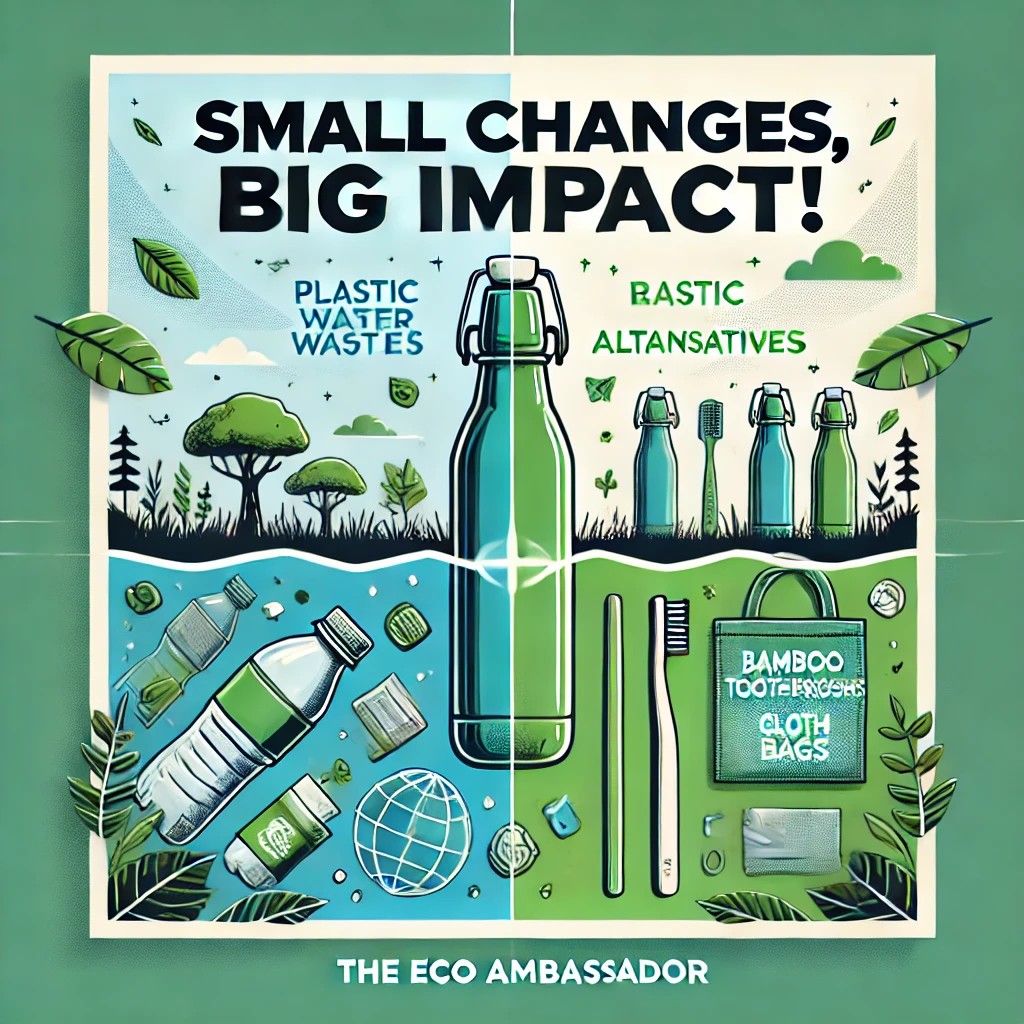Understanding the Plastic Waste Crisis: What You Can Do
Plastic
waste crisis is rapidly emerging as one of the most significant environmental
challenges of our time. This article dives into the current state of plastic
waste, its impacts, and actionable steps you can take to mitigate this crisis.
By understanding plastic pollution, we can make informed choices that protect
our planet.

Image courtesy: AI generated.
Unveiling
the Data: The Magnitude of Plastic Waste Crisis
Approximately 300 million tons of plastic waste (an amount equivalent to the weight of the human population) are produced every year as per the United Nations Environment Program (UNEP). However, only 9 per cent of that is recycled and the vast majority of the rest accumulates in landfills or the natural environment. Over time, these materials break down into microplastics that cause additional pollutants into the human food chain, freshwater systems, and air. In addition, every year, an estimated 11 million tons of plastic enter the world’s oceans (UNEP, 2022).
The
Environmental and Health Impacts of Plastic
Plastic
waste crisis effects marine life and human health. Marine animals ingest plastic
debris, mistaking it for food, resulting in injury or death. Proportionately,
humans are at risk as microplastics have been found in food items and drinking
water, raising concerns about potential long-term health impacts.
Taking Action: Steps to Reduce Plastic Pollution

Embrace the 3Rs: Reduce, Reuse, Recycle
Reducing your plastic consumption is paramount to tackle plastic waste crisis. Adopt alternatives such as
reusable bags, bottles, and containers. Ensure you recycle properly by
understanding local guidelines, as contamination often leads to recyclable
materials being disposed of improperly.
Support Policy and Innovation
Advocate for policies that impose restrictions on single-use plastics and
support innovation in biodegradable materials. Countries like Rwanda have
banned plastic bags, showcasing the positive impact of stringent regulations
(Mutabazi, 2020).
Educate and Engage Your Community
Raising awareness in your community about the effects of plastic waste crisis can
lead to collective action. Host local clean-ups, educate others on the
importance of reducing plastic usage, and collaborate with organizations
focusing on plastic waste solutions.
Your Role in Combating Plastic Pollution
Addressing the plastic waste crisis requires global recognition and
individual commitment. By understanding the urgency and scope of the problem,
we can all play a pivotal role in crafting a sustainable future. Let's take
action today for a cleaner, healthier planet.
Mitigation Strategies and Future Outlook
Addressing plastic pollution requires robust policy frameworks, technological
innovation, and behavioral shifts. Countries worldwide are implementing
regulations to reduce plastic usage, such as banning single-use plastics,
improving collection and recycling processes, and incentivizing the development
of biodegradable alternatives.
Innovative solutions, including the circular economy model, are gaining
traction. This model promotes the rethinking of product lifecycles to minimize
waste, encouraging practices like redesign, repair, and re-use.
Furthermore, public awareness initiatives are crucial in changing consumer
behavior toward more sustainable practices. Community-led efforts, educational
campaigns, and corporate accountability can collectively drive a move towards
reduced plastic usage.
More on Plastic pollution:
10 Easy Eco-Friendly Swaps to Reduce Plastic Waste!
Plastic Pollution: Silent Threat to our Planet
Total Visits to Site: